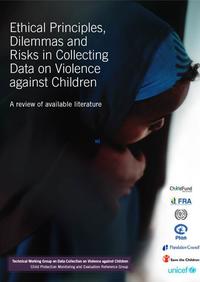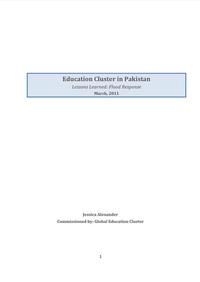Resources
Request support on coordination, information management, capacity development or other education in emergencies areas.
Demande de soutien en coordination, gestion de l’information, développement des capacités et autres domaines de l'éducation en situation d'urgence.
لطلب الدعم في مجال التنسيق ، إدارة المعلومات ، تنمية القدرات أو في اي مجال من مجالات التعليم في مناطق الطوارئ
Solicitar apoyo en coordinación, gestión de la información, desarrollo de capacidades u otra áreas en educación en emergencias.
Featured Resources
below you can find selected tools

COVID-19 Resources
View resources to support education in emergencies coordination during the COVID-19 pandemic.

Guidance on Education Cluster Co-Leadership Arrangements at the Country Level
Indicative Guidance for the establishment and management of co-leadership arrangements at the country level.

Inter-agency Network for Education in Emergencies
For technical education in emergencies resources, please visit the INEE website.
Pakistan MIRA Provincial Assessment Working Group Terms of Reference
Pakistan is prone to repeated crisis which impact the well being of the population. In order to understand the impact of the crisis on the population, to understand their needs, identify their location, and develop an appropriate response to their needs, it is necessary to carry out an assessment.…
- Coordination: Cluster Management, Needs Assessment
- Emergency: Floods
- HPC: Needs Assessment & Analysis
Pakistan MIRA Code of Conduct Agreement
This code of conduct provides basic standards in relation to interviewing and documenting information as part of the Multi-cluster Initial Rapid Assessment (MIRA) of the areas where disaster occurs in Pakistan. The principles laid down in this code of conduct are to safeguard the best interests of…
- Coordination: Needs Assessment
- Emergency: Floods
- HPC: Needs Assessment & Analysis
Ethical Research Involving Children
This compendium, together with the associated website (see: http://childethics.com), has been specifically designed to provide a rich repository of evidence-based information and resources to guide and improve research involving children.
- Coordination: Needs Assessment
- HPC: Needs Assessment & Analysis
- Technical Areas: Accountability to Affected Populaiton
Ethical Principles, Dilemmas and Risks in Collecting Data on Violence against Children
Ethical guidelines are crucial when carrying out research on violence against children (VAC). This literature review is a contribution to the foundations for the development of such ethical guidelines. It aims to capture current thinking around ethical issues and provide empirical support to guide…
- Coordination: Needs Assessment
- HPC: Needs Assessment & Analysis
- Technical Areas: Protection
The Child Friendly Community Assessment Tools: A Facilitator’s Guide to the Local Assessment of Children’s Rights
This guidebook describes a detailed step-by-step process for broadly assessing and monitoring children’s living conditions in communities of cities and towns of different sizes as well as in rural communitie. The assessment process outlined in the guidebook enables the collection of community level…
- Coordination: Needs Assessment
- HPC: Needs Assessment & Analysis
- Technical Areas: Protection
Education Cluster in Pakistan: Lessons Learned Flood Response
The Global Education Cluster commissioned a lessons learned exercise covering the period from the start of the floods in July until March 2010. This report outlines the main findings from this review and highlights a number of recommendations
- Coordination: Knowledge Mangement
- Emergency: Floods
- HPC: Operational Peer Review and Evaluation
Rapid Assessment Sampling in Emergency Situations
The aim of this paper is to give the reader some ideas about the key points and principles related to sampling that need to be considered when carrying out a rapid assessment in an emergency situation.
- Coordination: Needs Assessment
- HPC: Needs Assessment & Analysis
Pakistan Assessment Working Group Terms of Reference
In order to further strengthen the inter-cluster coordination on assessments, the ICCM requested OCHA to establish an Assessment Working Group (AWG). The group was composed of cluster and agency needs assessment representatives and/or experts. OCHA chaired the Assessment Working Group and this…
- Coordination: Cluster Management, Needs Assessment
- Emergency: Floods
- HPC: Needs Assessment & Analysis
Adamawa State Floods: Education Sector Snapshot - October 2022
n 2022 the flash flood began early in Adamawa in the Month of July. Heavy rainfall alongside the release of water from the Lagdo Dam in Cameroon have caued the flooding. State Emergency Management Agency reports that an estimated 171, 000persons are affected, while 89,000 hectares of farmlands are…
- Emergency: Floods
Filter results
Coordination(selected )
Country(selected )
Emergency(selected )
Humanitarian Programme Cycle(selected )
Language(selected )
Publication Date(selected )
Publisher(selected )
Resource Type(selected )
Technical Areas(selected )
Can’t find what you’re looking for?
Contact your relevant language Help Desk








